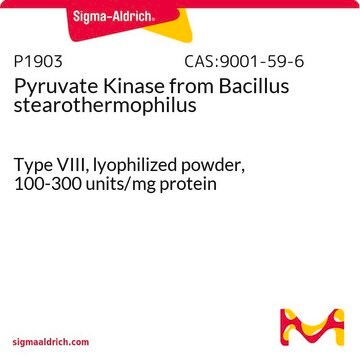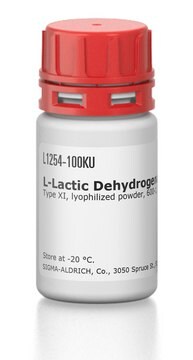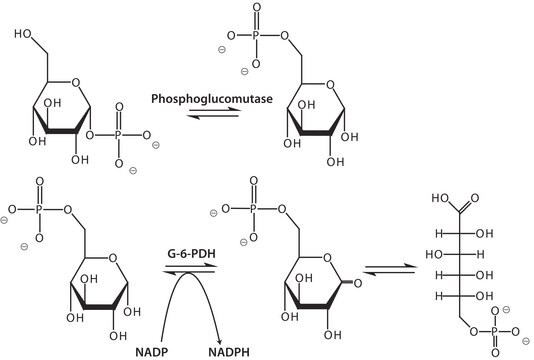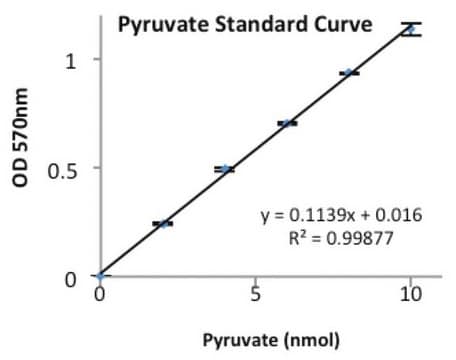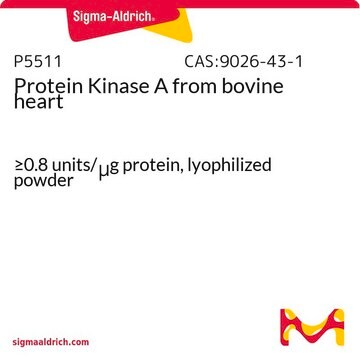P2014
Phosphorylase Kinase from rabbit muscle
lyophilized powder, ≥60 units/mg protein
Synonym(s):
ATP:phosphorylase-b phosphotransferase, Dephosphophosphorylase kinase
About This Item
Recommended Products
form
lyophilized powder
specific activity
≥60 units/mg protein
composition
Protein, 20-40% biuret
foreign activity
ATPase ≤0.5%
phosphorylase a ≤1%
phosphorylase b ≤5%
storage temp.
−20°C
General description
Application
Unit Definition
Physical form
Storage Class Code
11 - Combustible Solids
WGK
WGK 3
Flash Point(F)
Not applicable
Flash Point(C)
Not applicable
Personal Protective Equipment
Regulatory Listings
Regulatory Listings are mainly provided for chemical products. Only limited information can be provided here for non-chemical products. No entry means none of the components are listed. It is the user’s obligation to ensure the safe and legal use of the product.
JAN Code
P2014-BULK:
P2014-2.5KU:
P2014-200UN:
P2014-VAR:
P2014-1KU:
Choose from one of the most recent versions:
Certificates of Analysis (COA)
Don't see the Right Version?
If you require a particular version, you can look up a specific certificate by the Lot or Batch number.
Already Own This Product?
Find documentation for the products that you have recently purchased in the Document Library.
Our team of scientists has experience in all areas of research including Life Science, Material Science, Chemical Synthesis, Chromatography, Analytical and many others.
Contact Technical Service


